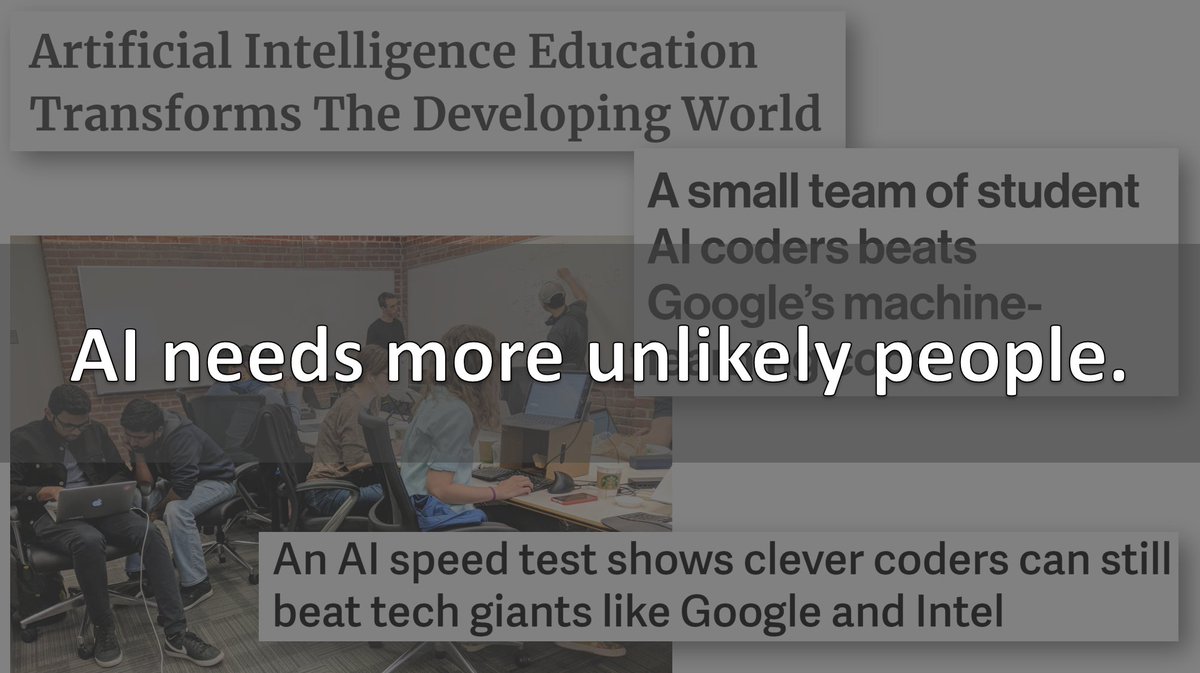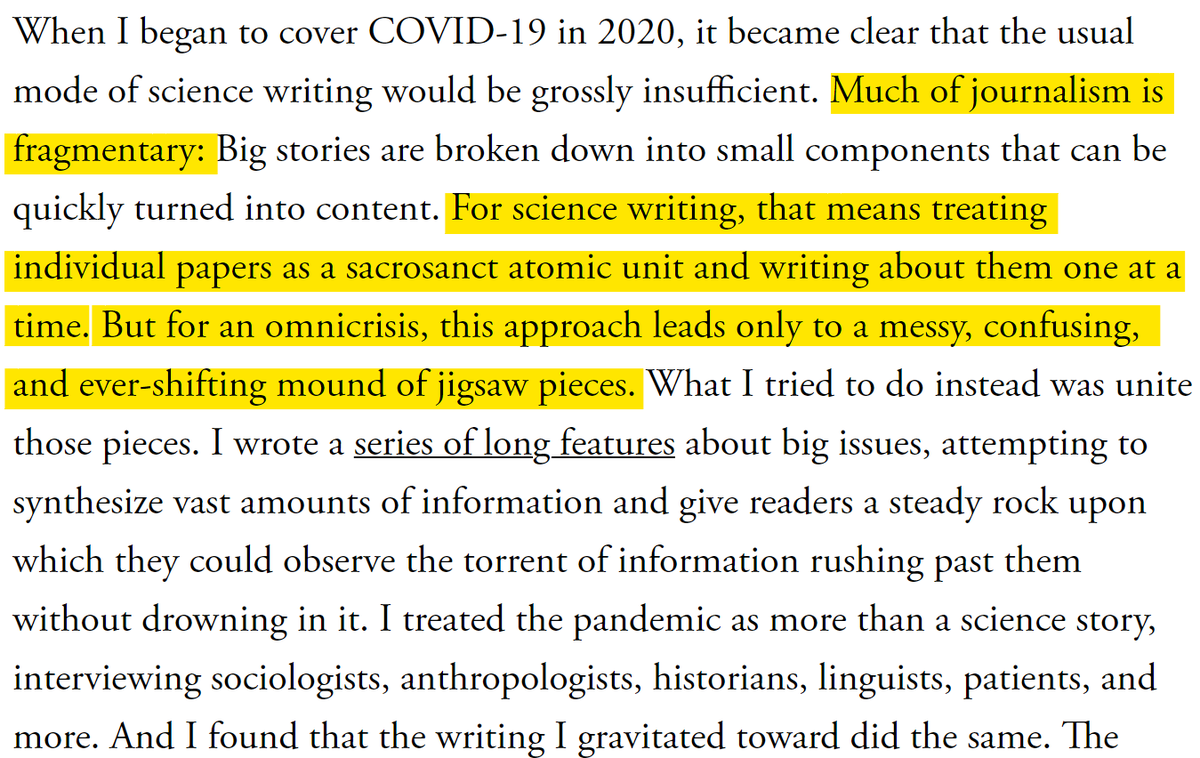
Stories like this are sadly common. When MDs discourage everyone else (even STEM PhDs) from reading medical literature, this really does NOT help us create a society with higher scientific & medical literacy.
https://twitter.com/luizpizzato/status/1448587152674091008
Problems with "appeal to authority" arguments:
- many ppl are more motivated when they know the underlying reasoning/mechanism/data
- doesn't build underlying scientific knowledge or critical thinking skills
- science is messy & always evolving
- discourage interdisciplinary work
- many ppl are more motivated when they know the underlying reasoning/mechanism/data
- doesn't build underlying scientific knowledge or critical thinking skills
- science is messy & always evolving
- discourage interdisciplinary work
I value interdisciplinary work, which entails encouraging others to learn about your field & engage with it, and recognizing that their other perspectives/skills/domains that can be relevant & shine new light on your area.
To return to the 1st tweet, it's also a cruel way to treat patients (regardless of their credentials) to suggest that they don't have a right to even try to understand their own health, medical treatments, and high-stakes decisions.
• • •
Missing some Tweet in this thread? You can try to
force a refresh













